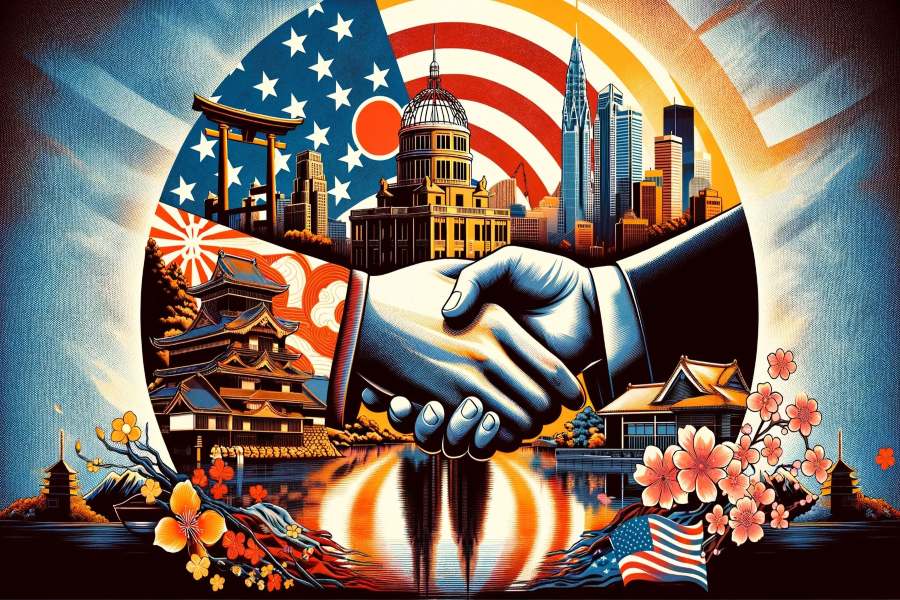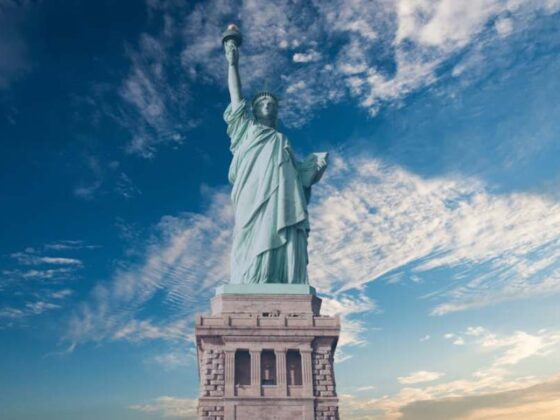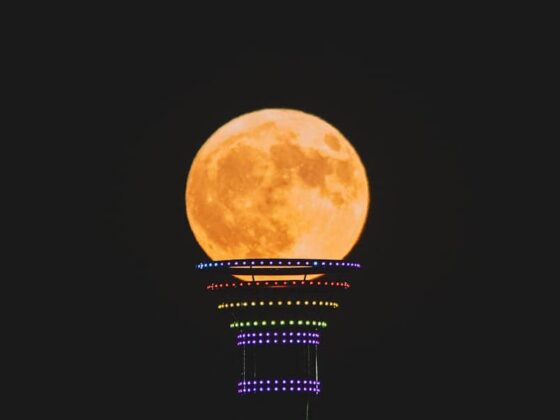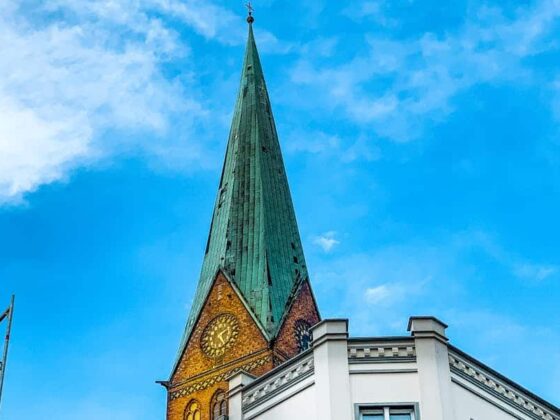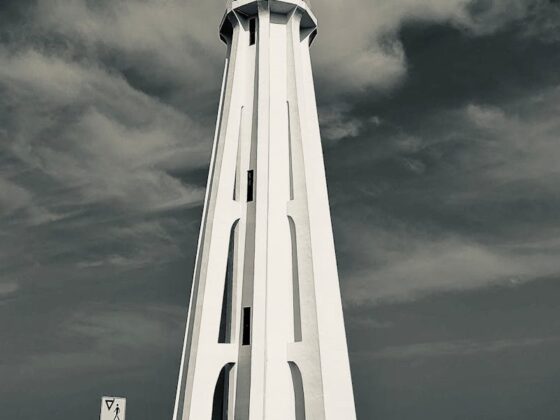Does Japan hate America for Hiroshima? This question often arises when discussing the historical and political dynamics between Japan and the United States. The atomic bombings of Hiroshima and Nagasaki in August 1945 marked a significant and tragic event in world history, leading to the end of World War II. These bombings caused immense destruction and loss of life, leaving a lasting impact on the survivors and the collective memory of Japan. In this blog, we’ll explore the historical context, the current state of relations between Japan and America, and whether the sentiments from Hiroshima still influence Japanese views towards the United States.
Does Japan Hate America for Hiroshima?
While the bombings of Hiroshima and Nagasaki remain a profound and painful memory for Japan, contemporary relations between Japan and America are characterized by strong diplomatic ties and mutual respect. The sentiment towards America in Japan is complex and multifaceted, influenced by decades of post-war reconciliation and cooperation.
The Historical Context of Hiroshima and Nagasaki
The atomic bombings of Hiroshima on August 6, 1945, and Nagasaki on August 9, 1945, were pivotal moments in World War II. These bombings resulted in the immediate deaths of tens of thousands of people, with many more suffering from the long-term effects of radiation. The decision to use atomic bombs has been a topic of intense debate, with arguments about whether it was necessary to end the war swiftly and save lives or an unjustifiable act of mass destruction.
In Japan, the bombings are remembered as a tragic event that brought immense suffering. The cities of Hiroshima and Nagasaki have become symbols of peace and the anti-nuclear movement. Memorials and museums in these cities educate visitors about the horrors of nuclear warfare and advocate for a world without nuclear weapons.
Despite the devastation, the bombings also marked the beginning of Japan’s post-war transformation. Following its surrender on August 15, 1945, Japan underwent significant changes under American occupation. The country transitioned from a militaristic empire to a pacifist nation, rebuilding its economy and establishing a democratic government. This reconstruction period laid the foundation for Japan’s modern relationship with the United States.
How Have Japan-America Relations Evolved Since WWII?
Post-War Reconstruction and American Influence
After World War II, American forces led by General Douglas MacArthur occupied Japan. This occupation period, which lasted until 1952, was crucial in shaping modern Japan. The United States played a significant role in rebuilding Japan’s economy, infrastructure, and political system. The Japanese Constitution, adopted in 1947, included a pacifist clause (Article 9) that renounced war and prohibited Japan from maintaining armed forces for warfare.
Economic Partnership and Growth
Japan and the United States developed a strong economic partnership in the decades following the war. Japan’s rapid industrialization and economic growth, often referred to as the “Japanese economic miracle,” were supported by American investments and technological exchange. By the 1980s, Japan had become one of the world’s leading economies, with strong trade ties to the United States.
Military Alliance and Security Cooperation
The U.S.-Japan Security Treaty, signed in 1951 and revised in 1960, established a military alliance between the two nations. The United States maintains military bases in Japan, providing security and defense support in exchange for Japan’s strategic location in the Asia-Pacific region. This alliance has been a cornerstone of Japan’s foreign policy and regional stability.
Cultural Exchange and Public Perception
Cultural exchange has also played a significant role in strengthening Japan-America relations. From American pop culture and technology influencing Japanese society to Japanese cuisine and culture gaining popularity in the U.S., this mutual exchange has fostered greater understanding and appreciation between the two nations. Public perception surveys often show a generally positive view of the United States among Japanese citizens, particularly among younger generations.
Does Hiroshima Still Influence Japanese Sentiments Towards America?
The bombings of Hiroshima and Nagasaki undoubtedly left a deep scar on Japan’s collective memory. For many Japanese, the events of August 1945 are a reminder of the horrors of war and the devastating impact of nuclear weapons. Each year, memorial ceremonies are held in Hiroshima and Nagasaki to honor the victims and promote a message of peace and nuclear disarmament.
However, it is essential to recognize that Japan’s sentiments towards America are not solely defined by these events. Over the decades, Japan and the United States have built a relationship based on mutual respect, cooperation, and shared interests. The efforts of both nations to address historical grievances and focus on future-oriented collaboration have helped mitigate the lingering pain from the past.
Survivors of the bombings, known as hibakusha, have been at the forefront of advocating for peace and reconciliation. Many hibakusha have expressed a desire for future generations to learn from the past and work towards a world without nuclear weapons. Their voices emphasize the importance of understanding and healing rather than harboring hatred.
What Are the Broader Implications of Hiroshima on Global Peace?
The legacy of Hiroshima extends beyond Japan and America, serving as a critical point of reflection for global peace and nuclear disarmament. Here are the broader implications:
- Awareness of Nuclear Destruction: Hiroshima serves as a stark reminder of the catastrophic consequences of nuclear weapons. The destruction caused by the atomic bomb underscores the need for global disarmament and the prevention of nuclear proliferation.
- Catalyst for International Treaties: The horror of Hiroshima has influenced the creation of international treaties aimed at preventing the use of nuclear weapons. The Treaty on the Non-Proliferation of Nuclear Weapons (NPT) and other disarmament agreements have roots in the lessons learned from Hiroshima.
- Promotion of Peace Education: Hiroshima’s history promotes peace education worldwide. Educational programs and initiatives emphasize the importance of understanding the impact of nuclear warfare and advocating for peace. These programs often include visits to Hiroshima’s Peace Memorial Park and interactions with hibakusha (atomic bomb survivors).
- Symbol of Resilience and Recovery: Hiroshima’s transformation from a devastated city to a vibrant urban center symbolizes human resilience and the capacity for recovery. This transformation inspires hope and demonstrates the ability to rebuild and thrive after immense destruction.
- Global Advocacy for Nuclear Disarmament: Hiroshima has become a focal point for global advocacy against nuclear weapons. International organizations, activists, and governments often reference Hiroshima in their campaigns for nuclear disarmament and non-proliferation.
- Fostering International Dialogue: The memory of Hiroshima fosters international dialogue on peace and security. It encourages countries to discuss reducing nuclear arsenals and preventing conflicts. This dialogue is crucial for maintaining global stability and preventing future tragedies.
- Cultural and Humanitarian Impact: Hiroshima’s story has a significant cultural and humanitarian impact, influencing art, literature, and public consciousness. It reminds people of the shared responsibility to prevent the recurrence of such devastation and to work towards a more peaceful world.
What Are the Key Factors in Japan-America Relations Today?
Economic Cooperation
Japan and the United States remain major economic partners. Bilateral trade, investment, and technological collaboration are critical aspects of their relationship. Both nations benefit from each other’s markets and innovations, contributing to global economic stability.
Security and Defense
The U.S.-Japan Security Alliance continues to be a vital component of regional security. Japan hosts several U.S. military bases, and both countries engage in joint military exercises and strategic planning. This alliance addresses regional challenges, such as North Korea’s nuclear program and China’s rising influence.
Diplomatic Engagement
Diplomatic relations between Japan and the United States are characterized by regular high-level meetings and consultations. Both nations work together on international issues such as climate change, global health, and trade regulations. Their cooperation in multilateral organizations, including the United Nations, further strengthens their global influence.
Cultural Exchange
Cultural ties between Japan and America are robust. The exchange of art, literature, music, and technology fosters mutual appreciation and understanding. Programs promoting educational exchanges and tourism also enhance people-to-people connections.
Technological Innovation
Collaboration in science and technology is a significant area of partnership. Japan and the U.S. are leaders in robotics, artificial intelligence, and space exploration. Joint research and development initiatives drive innovation and address global challenges.
Outline 6: What Lessons Can We Learn from Hiroshima?
- The Horrors of Nuclear Warfare: Hiroshima serves as a powerful reminder of the catastrophic consequences of nuclear weapons. It underscores the need for disarmament and non-proliferation efforts.
- Importance of Peace and Reconciliation: The post-war relationship between Japan and the United States highlights the potential for reconciliation and cooperation even after profound conflict.
- Resilience and Recovery: Hiroshima’s transformation from devastation to a thriving city exemplifies human resilience and the capacity for rebuilding.
- Global Responsibility: The legacy of Hiroshima calls for a collective global effort to prevent similar tragedies. It emphasizes the importance of international cooperation in promoting peace and security.
- Education and Awareness: Sharing the stories of Hiroshima’s survivors fosters empathy and understanding, encouraging future generations to advocate for a world free of nuclear weapons.
- Diplomatic Engagement: The ongoing diplomatic efforts between Japan and America demonstrate the importance of dialogue and collaboration in addressing historical grievances and building a better future.
Conclusion
The question, “Does Japan hate America for Hiroshima?” reveals a complex and nuanced relationship between the two nations. While the bombings of Hiroshima and Nagasaki are deeply ingrained in Japan’s collective memory, they do not solely define Japanese sentiments towards America. Over the past decades, Japan and the United States have forged a strong partnership based on mutual respect, cooperation, and shared values. The historical events of August 1945 serve as a solemn reminder of the past, but the present and future of Japan-America relations are characterized by collaboration and a commitment to peace. By acknowledging history and focusing on mutual understanding, both nations continue to build a relationship that transcends past grievances and looks towards a hopeful future.
FAQs
Does Japan still hold a grudge against America for Hiroshima?
While the bombings are a painful memory, contemporary Japan-America relations are based on cooperation and mutual respect. The sentiments are complex and multifaceted, reflecting decades of reconciliation and partnership.
How do Japanese people view America today?
Public perception surveys often show a generally positive view of the United States among Japanese citizens, particularly among younger generations, influenced by strong economic, cultural, and political ties.
What role did America play in Japan’s post-war reconstruction?
The United States played a significant role in Japan’s post-war reconstruction, helping to rebuild its economy, infrastructure, and political system during the occupation period led by General Douglas MacArthur.
How are the bombings of Hiroshima and Nagasaki commemorated in Japan?
Annual memorial ceremonies in Hiroshima and Nagasaki honor the victims and promote messages of peace and nuclear disarmament. Memorials and museums in these cities educate visitors about the horrors of nuclear warfare.
What is the U.S.-Japan Security Treaty?
The U.S.-Japan Security Treaty, signed in 1951 and revised in 1960, established a military alliance between the two nations, with the United States providing security and defense support in exchange for Japan’s strategic location in the Asia-Pacific region.
